How mobile money supercharged Kenya’s sports betting addiction
In Kenya, and elsewhere in Africa, the rapid spread of smartphones and mobile money has come with a stubbornly persistent vice: online gambling.
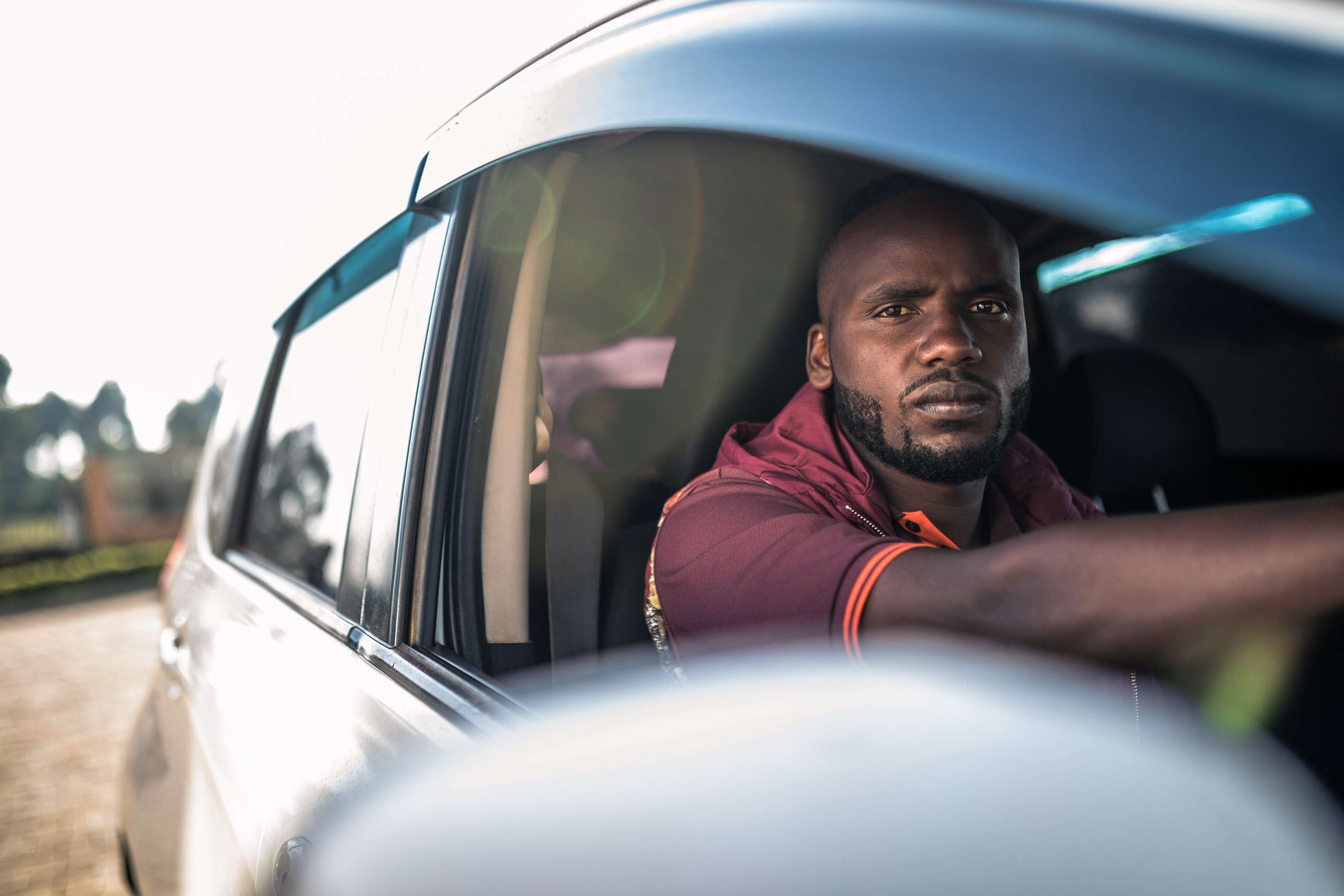
Hitchhiking in the cab of a sand truck late one Saturday night in 2018, Bill Kirwa had almost forgotten about the bet. The wager he’d placed that afternoon had been a long shot: to win, he’d need to correctly pick which team was ahead, at both halftime and full time, in four soccer matches on three continents. On the road and broke, Kirwa had been so preoccupied with finding a ride home he didn’t notice that the first three games had turned out just as he’d predicted.
Then, 5,000 miles away at the Stadio Olimpico in Rome, Lorenzo Insigne launched a ferocious shot on goal that secured his squad, Napoli, a 2–1 win in the team’s first contest of the Italian Serie A season. Kirwa had gotten this one right as well—and as the lorry he’d flagged down lurched through Kenya’s western highlands, his Infinix smartphone dinged with a notification. The bet of 3,500 Kenyan shillings he’d placed with mobile money, then worth approximately $35, had just turned into nearly $8,500. He almost let out a yelp, but glancing at the driver, he thought better of it. “I didn’t want that guy to notice,” he recalled recently. “From the day I was born, I had never seen so much money.”
Kirwa, now 26, put the windfall to good use, purchasing a car that enabled him to drive for Wasili, an Uber-style ride-hailing service in the nearby town of Eldoret. But he continued gambling, and over time, his losses mounted. In just a few years, he’s effectively erased his big win.
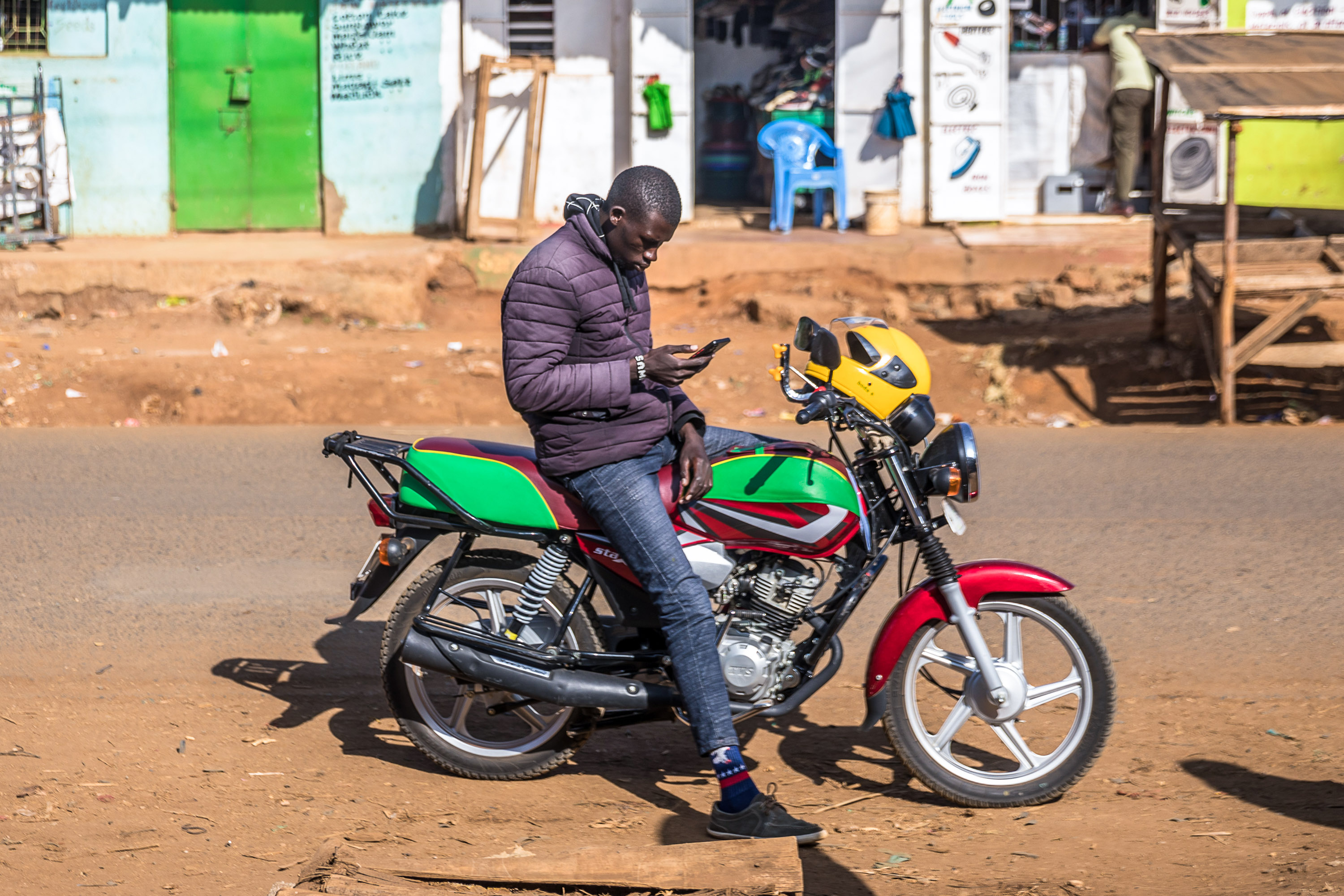
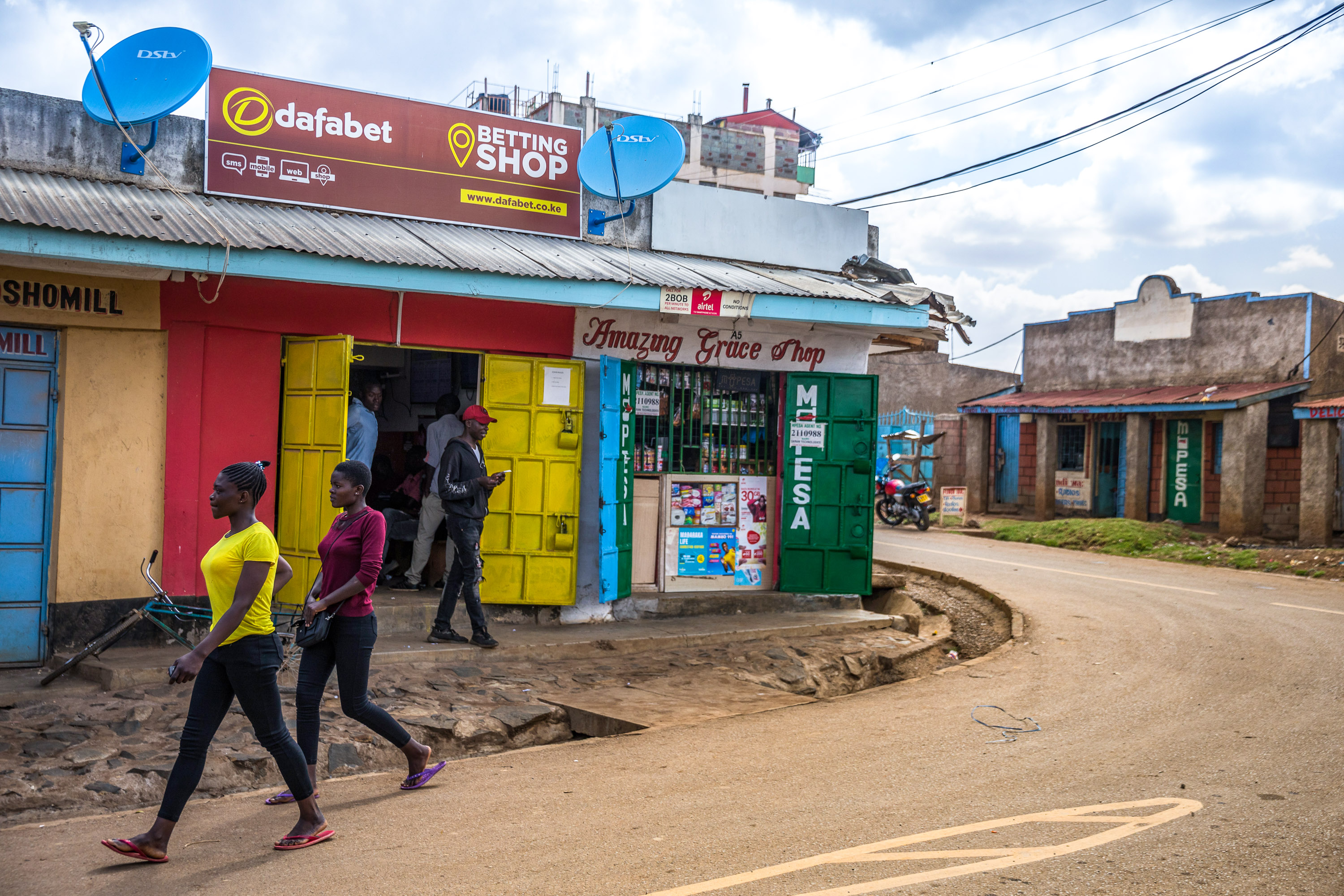
Mobile money has widened financial opportunities in Kenya. It has also made sports betting, which still persists in brick-and-mortar locations even easier.
Kirwa’s experience is hardly unique. Since the middle of the last decade, elected officials, community leaders, and researchers from Kenya and across the African continent have been sounding the alarm over the rising prevalence of sports betting. The practice has produced tales of riches far greater than Kirwa’s, but it has also broken families, consumed college tuitions, and even driven some to suicide.
Sports betting in Africa is not an entirely digital phenomenon: dingy betting parlors filled with underemployed youth have long been fixtures of the urban landscape. Increasingly, though, gambling has moved online, aided by the rapid spread of technologies like smartphones, high-speed internet, and mobile money platforms, which enable payments via phones without a bank account. Today, gambling happens almost anywhere: on college campuses, in far-flung villages, or even, as Kirwa admits with a hint of embarrassment, behind the wheel while driving. Experts say this ease of access is driving up participation and making betting more addictive across Africa—in economic powerhouses like Nigeria and South Africa; in poorer, more fragile states like the Democratic Republic of the Congo; and in soccer meccas such as Senegal, home to the 2021 Africa Cup of Nations champions, where online betting got a late start but is now growing by 50% each year.
Nowhere, though, is the craze as acute as it is in Kenya, the country that gave birth to the continent’s first mobile money service, M-Pesa, and is often called Africa’s “Silicon Savannah” for its status as a regional tech powerhouse. While the country’s mobile money revolution has played a well-documented role in encouraging savings and democratizing access to finance, M-Pesa’s role in betting presents something of a paradox. Today, it’s easier than ever for those in fragile economic circumstances to squander everything. Although estimates on the prevalence of gambling vary, a December 2021 survey by the US research firm GeoPoll found that 84% of Kenyan youth polled had tried betting, and one-third of those reported betting on at least a daily basis. The vast majority, like Kirwa, do so on their smartphones using mobile money.
84% of Kenyan youth polled had tried betting, and one-third of those reported betting on at least a daily basis.
“Most people who bet in Kenya are not doing it for recreation—they’re doing it because they want to make money,” says Fabio Ogachi, a professor of psychology at Nairobi’s Kenyatta University. Ogachi says a significant proportion of Kenyans who bet show signs of gambling addiction—behaviors that include betting to recover lost funds, staking increasing amounts, and lying about one’s habit. Technology, he adds, has been a major driver of the sports-betting phenomenon: “We’ve been using mobile money for so many years, it’s become part and parcel of how we conduct business. When online betting came along, it found this ideal system was in place.”
When financial inclusion isn’t enough
That mobile money would become so ubiquitous in Africa—let alone fuel a betting epidemic—is in many ways an accident of history. The technology has its roots in a 2006 experiment, conducted by the telecom firms Vodafone of the UK, and Safaricom of Kenya, that sought ways to increase access to finance among those who’d previously been excluded from traditional banking.
That mobile money would become so ubiquitous in Africa—let alone fuel a betting epidemic—is in many ways an accident of history.
The original idea was to use phones to disburse and repay microfinance loans. But participants in a pilot scheme in Kenya began using it for something else: sending money home. In a country where young people continued to abandon family farms to seek out opportunities in towns and cities, mobile money filled an essential niche. Previously, supporting relatives often meant sending cash by bus or post, which was unreliable and expensive. Safaricom invested heavily in building a network of agents who acted like human ATMs so recipients could withdraw cash from their digital wallets. Over time the system, called M-Pesa (M for “mobile” plus the Swahili word for money), expanded to include a range of other payment and loan services, and eventually it began to replace cash entirely. Today, Safaricom boasts 30 million active M-Pesa accounts in Kenya, roughly equivalent to the country’s adult population. In the 12-month period leading up to March 2021, the service processed transactions worth $193 billion, a figure nearly twice the size of Kenya’s GDP.
True to the experiment’s promise, M-Pesa’s growth produced tangible benefits. In 2006, according to the Central Bank of Kenya, only 27% of Kenyan adults had access to formal financial services, such as means for saving, borrowing, or making non-cash payments. Thanks to M-Pesa, 84% do now. Research published in 2016 by the economists Tavneet Suri and William Jack found that access to M-Pesa helped pull 2% of Kenya’s households out of extreme poverty, in part by enabling women to move away from subsistence agriculture and into retail businesses. Studies from countries where mobile money has spread have found that its use improves resilience to financial shocks and facilitates higher rates of household saving. The technology’s global footprint continues to grow: as of 2020, according to the Global System for Mobile Communications Association, there were 310 mobile money services available in 96 countries, with 300 million active accounts—more than half of them in sub-Saharan Africa.
M-Pesa may have been a great success, but it was still no magic fix for Kenya’s wider economic challenges. Although the country’s GDP doubled in the 15 years before the pandemic, vaulting it to World Bank–designated “lower middle income” status, citizens have long complained that this new wealth hasn’t trickled down. Many lament a recent infrastructure binge that has included new highways, a major expansion of the power grid, and a $3.6 billion Chinese-built railway to the coast. Watchdogs say the budgets of these projects have been inflated by kickbacks. That has boosted government debt, weakened the Kenyan shilling, and created new taxes, causing living costs to spike in turn.
Finding employment hasn’t gotten easier, either. According to government statistics, Kenya, with a population of 54 million, had just 3.1 million official salaried jobs in 2019. Pandemic restrictions contributed to a net loss of nearly 200,000 of them in 2020. But even before the coronavirus, annual job growth was barely enough to put a dent in the onslaught of new high school and college graduates looking for work. Even graduates of Kenya’s elite universities often struggle for years to find suitable employment. The rise of social media has also offered up-close confirmation that their counterparts elsewhere have it better. “People are comparing themselves not just with their neighbors but with everyone, even strangers from across the globe,” Ogachi says. “That breeds an even higher level of frustration.”
Betting becomes the hustle
With so many shut out of employment, young Kenyans are increasingly forgoing the job search entirely, turning instead to entrepreneurship—or as many call it, perhaps more accurately, “hustling.” Kirwa’s hustle began in 2017, after he abandoned plans to become a teacher. He’d struggled to pay his university tuition, so he dropped out, took the money he had left, and opened a kiosk where customers could access desktop computers and perform M-Pesa cash-outs. For extra cash, he started selling printouts with information about foreign soccer matches. Customers, he’d noticed, were increasingly tethered to their phones to bet on Kenya’s favorite pastime.
With so many shut out of employment, young Kenyans are turning to entrepreneurship— or as many call it, perhaps more accurately, “hustling.”
Kenya’s status as an early tech adopter helped fuel the trend. New undersea cables and an influx of Chinese-branded smartphones had drastically reduced the cost of getting online (today an estimated 85% of the population has access to a connection). In a country where most people still lacked bank accounts or credit cards, M-Pesa offered a fast and secure means of payment. And a barrage of loosely regulated third-party lending apps that can link to M-Pesa meant bettors could indulge even if their accounts were empty.
Kirwa, who saw his father placing bets as well, was soon taken by the craze himself. He tried out multiple sites, which came with ever-expanding options: dog racing, rugby, e-casinos, even darts and table tennis. Like most young Kenyans, though, he mainly stuck to soccer, betting in ever larger amounts. Sometimes he’d choose to bet rather than eat. Convinced he could outsmart the bookmakers, he began to analyze past results—“Googling the potential of teams,” as he puts it—and following self-styled experts on social media. Kirwa’s life-changing bet was based on advice from a Nigerian tipster he found on the messaging service Telegram. By that point, betting had become central to his hustle. “Nowadays in Kenya, we term betting as a job,” he says. “People believe that when you do genuine bets, when you take time to do good analyzation, you can win.”
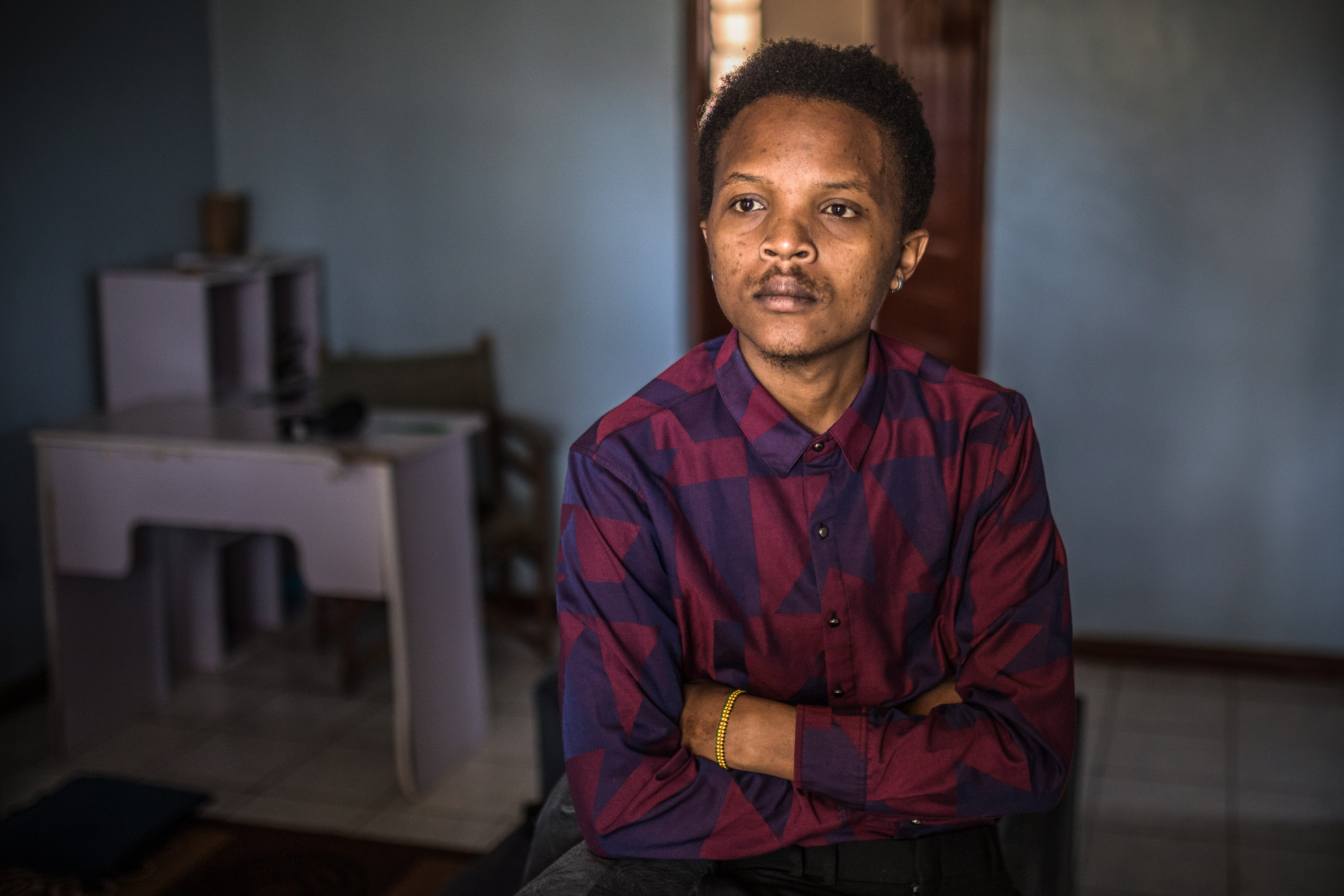
In the long run, of course, that belief is incorrect: sports betting is not a game of skill, and the odds always benefit the house. Yet with enough people buying into that narrative, or at least putting faith in their luck, the industry exploded. SportPesa, a firm founded in Nairobi by a group of Bulgarian and Kenyan investors, including a former mayor of the city, was the vanguard. Established in 2014, it offered a sleek online interface that allowed users to fund accounts via M-Pesa and place bets on matches from around the globe within seconds. By 2018, according to figures obtained by the British investigative outlet Finance Uncovered, Kenyans were spending $1.3 billion a year to place bets on the platform—more than the annual budget of the country’s Ministry of Health. At its height, SportPesa sponsored teams and athletes in rugby, boxing, Formula One, and soccer—including the English Premier League squad Everton. Wayne Rooney, one of the most prolific goal scorers of his generation, plied the pitch with “SportPesa” emblazoned on his chest.
Other companies followed SportPesa’s lead. Hempstone Ngare, a former radio reporter hired in 2017 to manage social media for one of the company’s competitors, recalls a period of especially aggressive marketing: billboards placed across the country, “good-looking ladies” offering T-shirts in exchange for sign-ups, unsolicited text messages, and Ngare’s own posts on Facebook, Instagram, and Twitter, designed to lure followers who could later be converted into customers. Opportunity was rife. One 2016 poll at Kenyatta University found that 78% of male and 57% of female students had tried betting, with nearly half gambling at least once per week (and 80% reporting net losses). Subsequent surveys by GeoPoll consistently found that more than three-quarters of youth in Kenya and more than half across Uganda, Tanzania, Ghana, Nigeria, and South Africa had indulged, most of them on their phones with the aid of mobile money.
By 2018, Kenyans were spending $1.3 billion a year to place bets on the SportPesa platform.
As sports betting became entrenched, addiction followed. A 2020 study of Kenyan student bettors by Ogachi diagnosed nearly seven out of 10 with gambling disorders. Nelson Bwire, who led the Kenyatta University poll while an undergraduate, was so alarmed he founded a nonprofit, the Gaming Awareness Society of Kenya, that seeks to reduce gambling harm. Bwire has counseled students who’ve been forced to leave school after betting away their tuition, and workers who’ve been jailed for squandering their employers’ money.
A habit that’s not easy to kick
Some argue that Kenya should ban sports betting entirely. There is certainly precedent: the practice is highly restricted in many parts of the world, including most of Asia and the Middle East. Yet those who know the Kenyan sector well say that dramatic reforms aren’t likely. For one thing, taxes derived from betting have become an important source of revenue for Kenya’s cash-strapped government. Many of the country’s leading betting houses also have close financial links to politicians or their associates; some believe that could be part of the reason a 2019 bill calling for a new regulator with stronger teeth did not gain traction in the Kenyan parliament. And betting firms themselves have become important sources of employment: Ngare, who’s worked for several of them, says he’d prefer to return to journalism, but he also has rent to pay and parents back home to support.
Still, there are signs that Kenyan authorities have had some success in reining in the industry’s excesses. New taxes on stakes and winnings appear to have incentivized some bettors to cut back. A law passed last December gives the Central Bank new powers to regulate digital lenders. And thanks to restrictions put in place by the country’s Betting Control and Licensing Board (BCLB), gambling firms can no longer advertise on radio and TV during daytime hours. But the industry is still pushing forward. In July 2019, the board refused to renew the licenses of 27 betting firms, including SportPesa, in a row over the payment of back taxes. Some returned, and new firms saw an opening. Today, the BCLB lists 99 licensed bookmakers, more than before the crackdown.
In an interview at its Nairobi headquarters, BCLB director Peter Mbugi told me the number of Kenyans betting and the total volumes staked are lower today than in 2019, though he declined to share any figures. Mbugi attributes the drop to tighter regulations and a growing awareness that sports betting is “not as rosy” as many had thought. But others say a reduction in numbers could be a temporary blip caused by the 2019 shake-up and the pandemic, which put a squeeze on household finances and disrupted global soccer leagues for months. Data from Safaricom, which controls more than 99% of Kenya’s mobile money market, shows that M-Pesa users’ transactions with betting sites were worth $737 million in the six months ending in September 2021, up from $436 million in the same period of 2020. Meanwhile, there are new African markets to explore. Karen Njerenga, who leads marketing in Kenya for Betway, a global firm with operations in seven African countries, says the company has its sights on several others. Chalkline Sports, which helps betting companies acquire and retain customers, has described the continent’s “untapped potential” in online gaming as “incredible.”
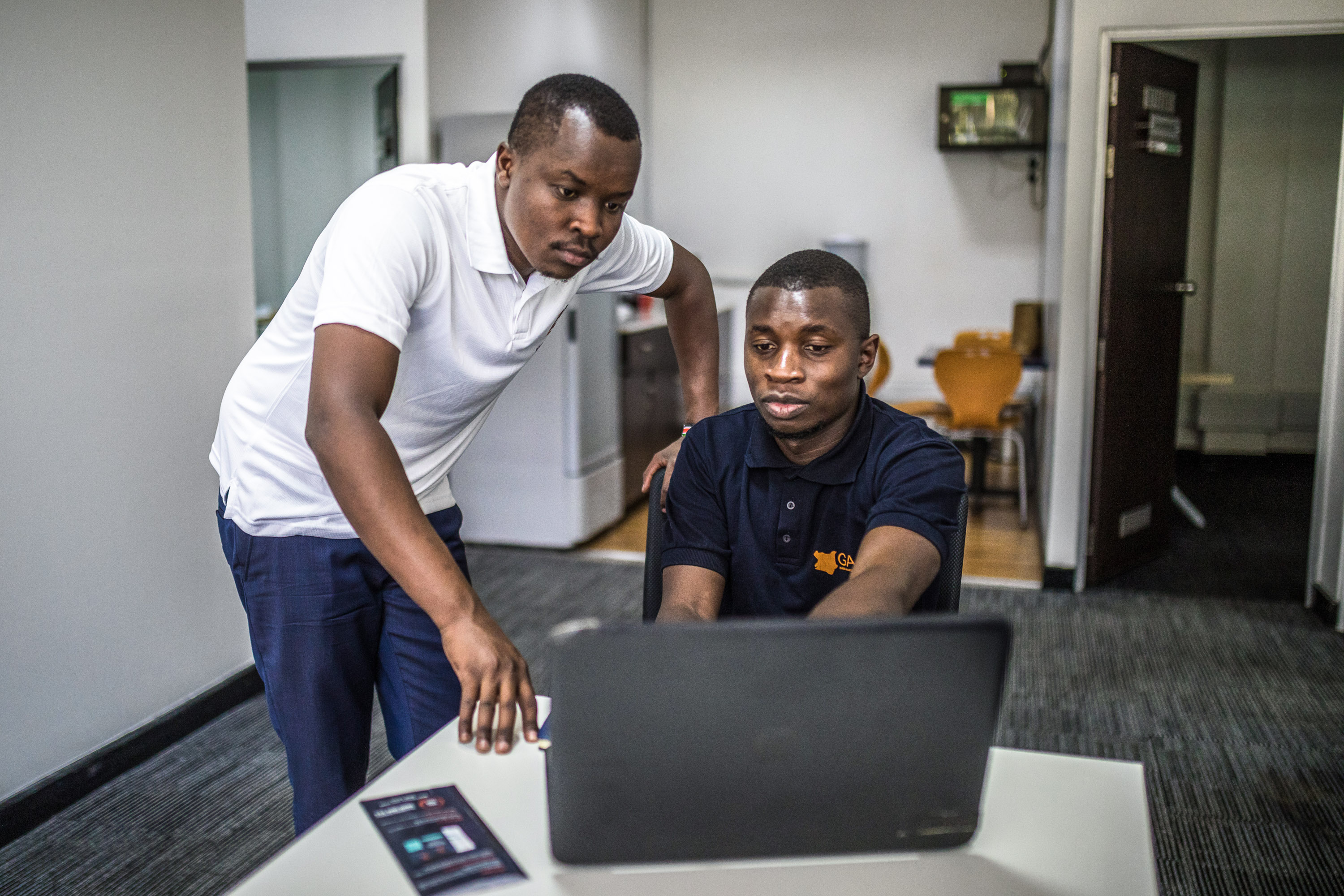
Some hope the same sorts of technologies that enabled this industry to thrive could also mitigate the damage it can cause. Last year, for example, Bwire and fellow activist Weldon Koros partnered with the British company Gamban to introduce an app that allows addicts to block access to all gambling sites on their devices. Uptake of the software, which cannot be uninstalled, has been modest so far, but Bwire says it has helped some people “reduce temptations.” Bwire and Koros have also had some success in lobbying universities to block betting sites on their networks: if students have to pay for data, the thinking goes, they might spend less time on their devices. And the pair lauds Safaricom’s 2021 launch of a “smart mobile payment system” for student loans, which prevents tuition fees from being diverted for betting. But Bwire would like to see the company do more, including placing tighter restrictions on text-based advertising and the overdraft facilities that many bettors use to place bets on credit, in addition to loans from outside apps. (A spokesperson for Safaricom, which earned $37 million from betting-related fees in the 2021 financial year, did not respond to multiple requests for comment.)
Betting has become so core to his identity, Kirwa says, it’s hard for him to fathom life without it.
New digital products could sway some bettors toward alternative hustles. Kevin Kegera, a third-year student at Kenyatta University, says he tried sports betting after high school but gave up after realizing the odds were rigged against him. These days, he’s moved on to trading foreign currency: FXPesa, an app that lets him use mobile money to do so, launched in 2019, and others have followed. Many of his friends also use apps to trade in foreign currencies, cryptocurrency, or foreign stocks—options that weren’t unavailable even a few years ago. Kegera, who aspires to be “Kenya’s Warren Buffett,” suspects greater awareness of these products will continue to lure some educated Kenyans from betting, though probably not the masses. “It’s very hard to convince someone who hasn’t been to college about markets,” he says.
Kirwa, for his part, is unlikely to kick his habit. One evening in Eldoret, I joined him in his red Toyota Vitz, a hatchback he had outfitted with tinted windows and electric-blue interior lighting. The Afrobeats blaring from the stereo would have been less tinny if he still had his old sound system, he lamented, but he’d sold it to repay a loan used to place a bet. Despite Kirwa’s poor record in the years since his big win, he says he has no plans to quit. Betting has become so core to his identity, he says, it’s hard for him to fathom life without it. Plus, it’s so convenient. His smartphone and M-Pesa wallet will always be right there in his pocket—and there’s always a chance luck will be on his side again.
Jonathan W. Rosen is a writer and journalist reporting from Africa.
Deep Dive
Humans and technology
Building a more reliable supply chain
Rapidly advancing technologies are building the modern supply chain, making transparent, collaborative, and data-driven systems a reality.
Building a data-driven health-care ecosystem
Harnessing data to improve the equity, affordability, and quality of the health care system.
Let’s not make the same mistakes with AI that we made with social media
Social media’s unregulated evolution over the past decade holds a lot of lessons that apply directly to AI companies and technologies.
Stay connected
Get the latest updates from
MIT Technology Review
Discover special offers, top stories, upcoming events, and more.